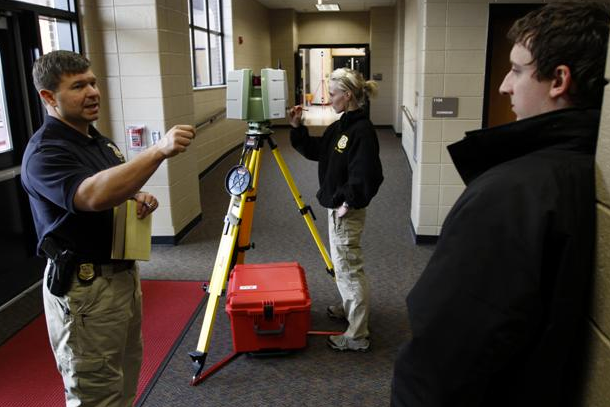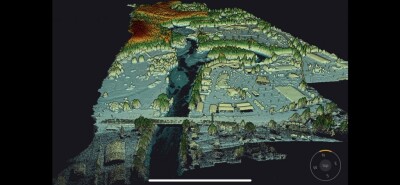Looks like the Georgia Bureau of Investigation is done messing around, jumping in with both feet and using laser scanning for crime scene documentation now as a matter of course.
Such is the revelation provided by this story from the Times Free Press, which has been one of the few mainstream publications to really get 3D scanning and the benefits it can offer. The publication did an extensive piece on how the Chattanooga PD is using laser scanning late last year.
Not only is the Georgia BI in the process of training agents across the state in laser scanning, using an area high school as a test bed, but the company tells the Free Press it’s planning on doubling its stock of scanners over the next year:
The GBI already owns four scanners, which cost about $160,000 each, a price that includes the computer software, extensive training and a contract for annual calibrations.
This year, the GBI plans to buy four more cameras, which will put it ahead of most law enforcement agencies across the nation, said Jerry Scott, special agent in charge of the Calhoun field office.
Anyone else know of an agency sporting eight C-10s?
Special Agent Steven Foster touts the scanner’s ability to “put the jury into the crime scene,” but it will be interesting to see how the increasing use of 3D fly throughs and animations affect actual trials. I think one of the commenters on the Chattanooga story makes a good point: As prosecutors become more and more comfortable presenting 3D data as evidence, defense attorneys are going to have to counter with experts in 3D of their own. And those experts cost money. Is technology making it more difficult for people to mount successful defenses of their innocence?
That probably remains to be seen, and Leica’s Tony Grissim makes the good point as well that this 3D data merely gets everyone closer and closer to the truth, and that innocent people will be able to use this data as much to show their innocence as prosecutors will be able to use it to prove guilt.
Except that the technology is really only on one side. It’s always the authorities who decide whether to do the scanning or not. The defense can’t scan the crime scene after the fact. It would seem that eventually there will need to be standards created for when and why a crime scene is scanned.
Will defense attorneys eventually be able to argue that negligence was shown in NOT scanning a crime scene? If the technology really offers the benefits we think it does, I don’t think that’s an unreasonable eventuality.






